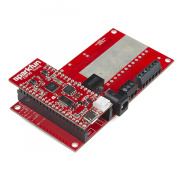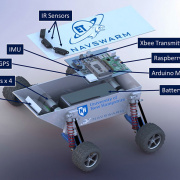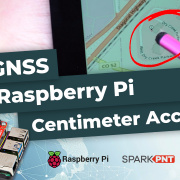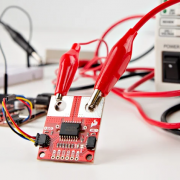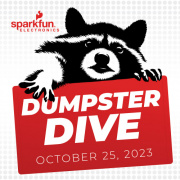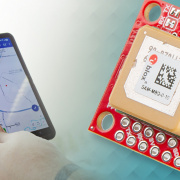micro:bit Revisited
Let's compile some Getting Started lessons for the micro:bit.
If you're reading this, it means I'm out of town and no one else snagged my blog post spot. However, since I was not able to put together an original video for this week, I decided to serenade you with a compilation of micro:bit stuff.
Before we released the micro:bit for sale, I put together a few videos going over how to program the BBC board. Since then, we've started selling the board, and I wanted to revisit some of these concepts.
If you'd like to read our Getting Started guide, it can be found here:
Getting Started with the micro:bit
MakeCode
Microsoft is supporting the BBC micro:bit in a big way. They've put together a drag-and-drop, web-based programming environment known as MakeCode, based on Google's Blockly. It is very similar to Scratch, but MakeCode compiles and downloads the user program to be run on the micro:bit's microcontroller. Similar to Scratch, MakeCode is aimed at 8- to 16-year-olds, although with a bit of coaching, you can probably get younger kids to code.
My four-part video series on micro:bit for SparkFun focuses exclusively on getting started with MakeCode (the playlist can be found here; it just wasn't embedding properly on the blog).
MicroPython
MicroPython is a stripped-down implementation of Python 3 that is optimized to run on microcontrollers, and there is a version of it available for the micro:bit. For older kids or programmers who want an easy-to-use text-based programming language, MicroPython is the way to go. In case you're curious, MicroPython is both compiled and interpreted to achieve its execution speed while maintaining the flexibility of a high-level language.
Like a good content creator, I came prepared with a couple of videos that show you how to use MicroPython with the micro:bit. (WARNING: I made these on my own, so they lack the professional polish of a SparkFun-produced video.)
If you want to check out MicroPython for the micro:bit, here are some resources:
mbed
If you really want to get down into the weeds, you can use C++ to program the micro:bit. The micro:bit is fully mbed-enabled, which means you can use ARM's online editor and compiler to write programs and download them to the micro:bit.
Unfortunately, I have not written many tutorials for mbed, and nothing for writing C++ for the micro:bit. However, if you are curious about how programming in mbed works, you can check out my mbed Starter Kit documentation. It's probably a little out of date at this point, but many of the examples should still work (and may even work for the micro:bit, assuming you have the necessary parts).
Has anyone gotten their micro:bit yet? If so, how do you like it, and what things would you like to see supported for it? Let us know in the comments below!
